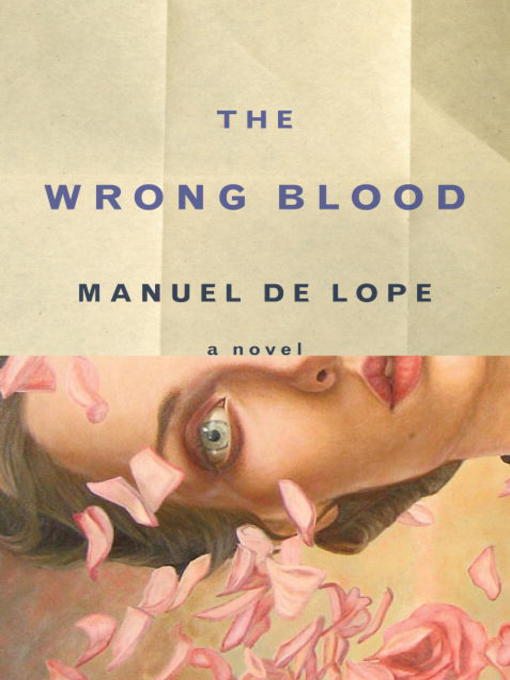
The Wrong Blood
A Novel
- اطلاعات
- نقد و بررسی
- دیدگاه کاربران
نقد و بررسی

July 5, 2010
This frustrating Spanish Civil War saga, the author's first to appear in English, has neither the pulse nor the plot to sustain itself over the course of its slow, laborious, and anticlimactic denouement. Doctor Félix Castro, a lonely, endearing cripple, has been observing his neighbors for years and eagerly strikes up a conversation when a young lawyer, Miguel Goitia, comes to stay in the villa of Las Cruces, which his grandmother has mysteriously bequeathed to her miserly maid, María Antonia. Premonitions, superstitions, and otherworldly manifestations guide or thwart the characters on their respective quests, while their profound motivations remain cryptic. The novel, which sashays between stilted exchanges involving Doctor Castro and the bland Goitia, and sometimes harried wartime recollections, manages some highly evocative descriptions of the Basque countryside and a number of astute characterizations. Unfortunately, the narrative suffers from a ceaseless supply of ponderous asides and a cumbersome translation that prefers a rigid fidelity to the original text over a smooth reading experience.

July 15, 2010
Even in translation, the American debut of a celebrated Spanish novelist reads rapturously.
Though novels are all about language, this one is even more so. The plot is a fairy-tale contrivance; the characters are kept at a psychological remove. Though the Spanish Civil War provides the key to the various intertwined destinies, it serves as a distant backdrop. What asserts itself most strongly is the author's literary style—the paragraphs that compare in length with those of Henry James, the chronology that hop-scotches across decades and generations as filtered through the consciousness of various characters, the prose that pulsates and palpitates: "An obscene juice oozed from the leaf buds on the tree. The vulvas of the irises were bursting into wine-colored or striped flowers. The power of the black, awakening earth showed itself in a monstrous way. There was a catastrophic essence in that inexorable and tranquil explosion of spring." An essential mystery lies at the heart of the elemental plot, which concerns the lives of two very different young women whom fate brings together. One is MarÃa Antonia Etxarri, who works at her stepfather's bar and is raped at the age of 16 by a soldier. The other is Isabel Cruces, who is a few years older than MarÃa Antonia and is about to wed a soldier who will be leaving for the war. A rich man traveling to the wedding suffers a stroke at the bar and owes gratitude to MarÃa Antonia's family for caring for him. Flash forward a few decades and Isabel is dead, having left her fortune and mansion to MarÃa Antonia, who has become her faithful servant. Isabel's grandson arrives at the mansion to study for his law exams and spends some time with their neighbor, a crippled doctor. The doctor knows a secret concerning Isabel and MarÃa Antonia. The reader learns it.
Grand themes and extravagant prose trump any hint of literary realism.
(COPYRIGHT (2010) KIRKUS REVIEWS/NIELSEN BUSINESS MEDIA, INC. ALL RIGHTS RESERVED.)

September 15, 2010
A veteran Spanish novelist appears in English for the first time with the publication of this poetic exploration of women's experience in war. Set in Basque country on the French-Spanish border, De Lope's story flashes forward and backward but centers on a few tragic events during the Spanish civil war in the lives of two women: Isabel, a young military widow, and Maria Antonia, the daughter of a tavern owner. Many years later memories are awakened and secrets stirred when a young law student, Isabel's grandson, arrives for a visit. A fourth character, a crippled doctor, may hold the secret that connects the others' stories. VERDICT De Lope is a masterly writer, constructing a shadowy architecture to house his expansive prose, intertwining plotlines, and themes of misfortune, solitude, and memory. Highly evocative of time and place, this resonant work will linger in readers' minds. Recommended.--Forest Turner, Suffolk Cty. House of Correction Lib., Boston
Copyright 2010 Library Journal, LLC Used with permission.

August 1, 2010
In the Basque country in northern Spain, at the start of the Spanish Civil War, one young woman, Maria Antonia, is raped by a soldier. Another, Isabel, is married and soon widowed. Years later, Isabels grandson Miguel comes to her house in Las Cruces in order to study for his upcoming law exams. Maria Antonia is the houses only other inhabitant, and also now its owner, and Miguels presence there stirs up phantoms. Next door lives Doctor Castro, who was sidelined by a crippling motorcycle accident before the war and has been solitary and largely idle ever since. For him, too, Miguel sets of waves of memory. In fact, the novel is largely about the memory, shifting back and forth between the past, when most of the events occur, and the time half a century later, when that past is relived. De Lope evokes his characters interior lives and their outer surroundings with equal beauty and intensity. This masterful novel is his first to be translated into English. Lets hope there are more.(Reprinted with permission of Booklist, copyright 2010, American Library Association.)




دیدگاه کاربران